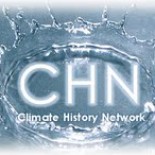New Study Linking Climate and Conflict
A new article has come out online in Science reviewing data from more than 60 studies examining relations between climate, weather, and conflict past and present. (Incidentally, the current August 2 issue of Science is a special on climate change). Authors Solomon Hsiang, Marshall Burke, and Edward Miguel find that intergroup violence has risen by more than ten percent for every standard deviation change in certain weather variables during periods of extreme weather or climate. Interestingly, the authors find that the relationship between weather and violence holds across a range of timescales, from hours to years. As with any study of this kind, the findings have raised some controversy, discussed in an accompanying Science news story. Critics claim selection bias in the authors’ choice of data and problems of publication bias towards positive results (i.e., it’s easier to get published when you do find a link with climate than when you don’t). The study has already been picked up several places in the mainstream news.
For climate historians, the study also offers a good overview of the quantitative literature on climate and conflict, and a good analysis of problems of correlation and causation. The authors conclude by considering a reasonable set of plausible mechanisms linking climate and conflict including impacts on labor markets, entitlements and inequality, migration, and psychological effects. The analysis may still seem too brief and shallow for historians used to detailed, context-specific monographs — but this is far more sophisticated than most studies, which tend to draw simple linear correlations between temperature and violence.
